News
Return of History: Putin Looks Backwards with his Gaze Focused on the Undoing of Democracy
In the first of a three-part series, The Brenthurst Foundation's Greg Mills reports from the Polish border with Ukraine, asking what might be expected from the next few days in the current conflict.
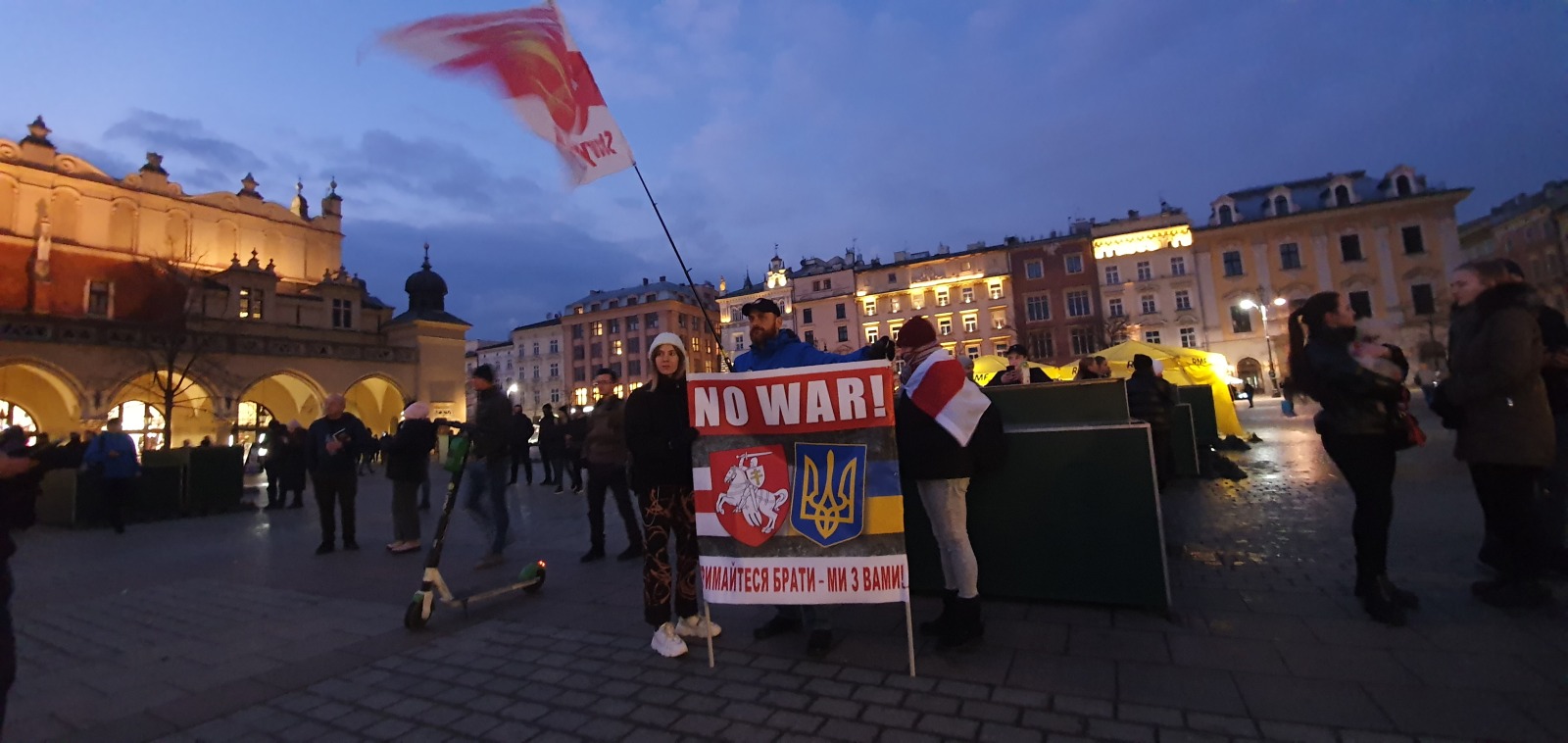
Over a kilometre out from the Polish-Ukrainian border at Medyka, trucks queue as police vehicles, blue lights flashing and sirens wailing, jink in and out of the traffic. A line of refugees, mostly women and children, wheel and clutch their baggage on the road into Poland, their lives in a suitcase.
They are among the 150,000 who fled Ukraine in the first 72 hours after Vladimir Putin announced his “special military operation” on Thursday.
The Poles have responded generously: citizens donating meals, food, toiletries, water, bedding and clothes to the newcomers. An old man pulls up in a beat-up car, delivering jars of homemade pickles. An obviously jampacked train rumbles by on a nearby line, apparently the first of two for the day. The soup kitchens are popular in the winter chill and some of the Ukrainians have waited for up to 20 hours in the open before getting through.
As they threaded their way past the trucks, shouting policemen and ubiquitous television crews, they make for signs held up by their hosts, labelled “Gdansk”, “Krakow” and even “Germany”. Aid agencies project that as many as five million Ukrainians may be on the move to escape the fighting. Already, before the conflict, there were three million Ukrainians living, working and studying in Poland, a nation of 44 million.
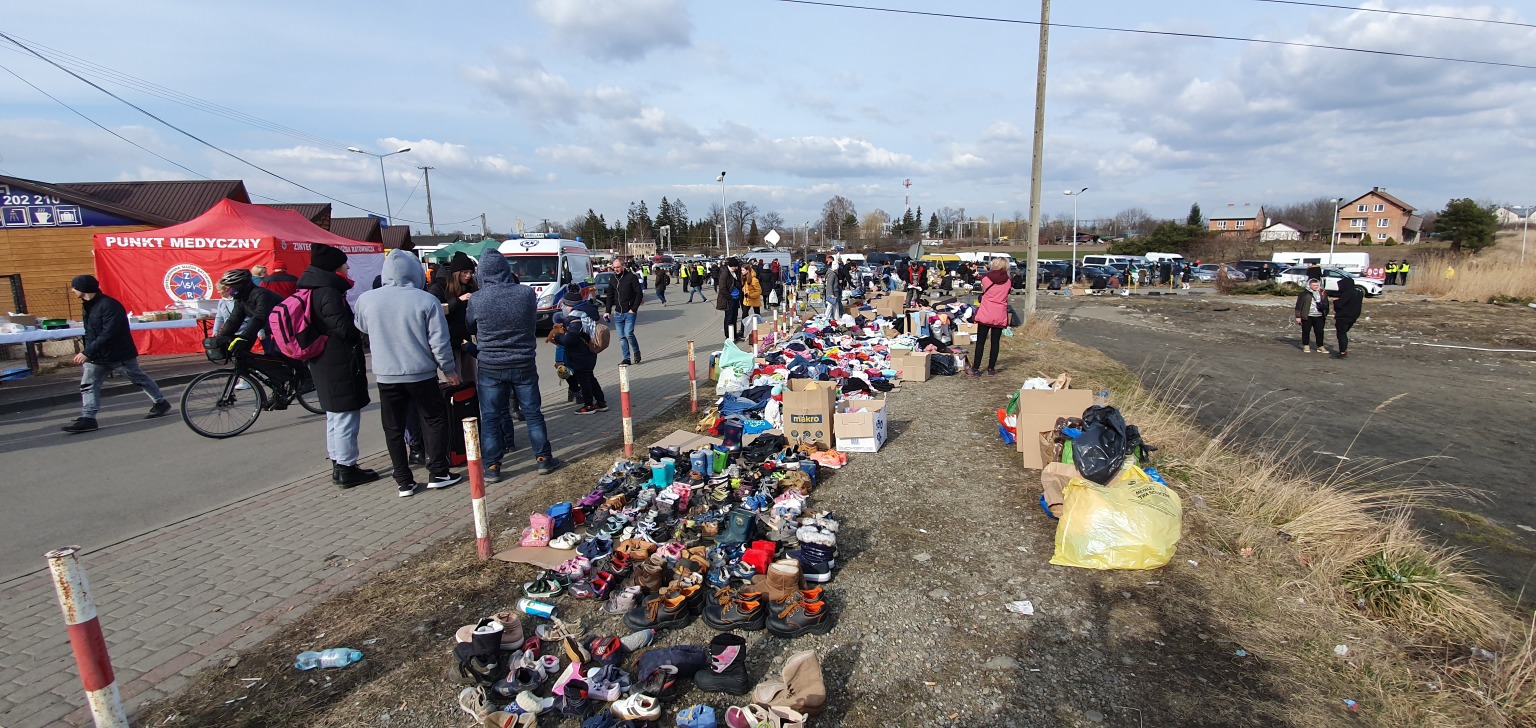
Europe has been here before, as Poland's own traumatic history reminds — invaded in September 1939 by both the Soviet Union and Nazi Germany after the Molotov-Ribbentrop Pact was signed that August. The speeches of Western leaders at the Munich Security Conference the week before the contemporary Russian invasion also raised the spectre of Prime Minister Neville Chamberlain's expediency with the Sudetenland in 1938, a summit held with Hitler also in Munich.
Poland is dotted with Nazi concentration camps, the site of the killing of about half of the six million Jews systematically exterminated during World War 2. Two of these — Sobibor and Belzec — the deadliest sites after Auschwitz-Birkenau and Treblinka, are both near the Ukrainian border.
Mention of the wars that defined the first half of the last century is now common.
Russia, said British Prime Minister Boris Johnson in the week before the invasion, would be responsible for “the biggest war in Europe since 1945”. Or as EU foreign policy chief Josep Borrell put it, Europe was “facing its darkest hours since World War 2”. Two industrialised, sovereign nations slugging it out is never going to be without cost and consequences.
Putin has taken to calling Ukraine's leadership “neo-Nazis”. “Once again I speak to the Ukrainian soldiers,” said the Russian president, addressing his enemy the day after the attack was launched. “Do not allow neo-Nazis and Banderites to use your children, your wives and the elderly as a human shield. Take power into your own hands. It seems that it will be easier for us to come to an agreement than with this gang of drug addicts and neo-Nazis.”
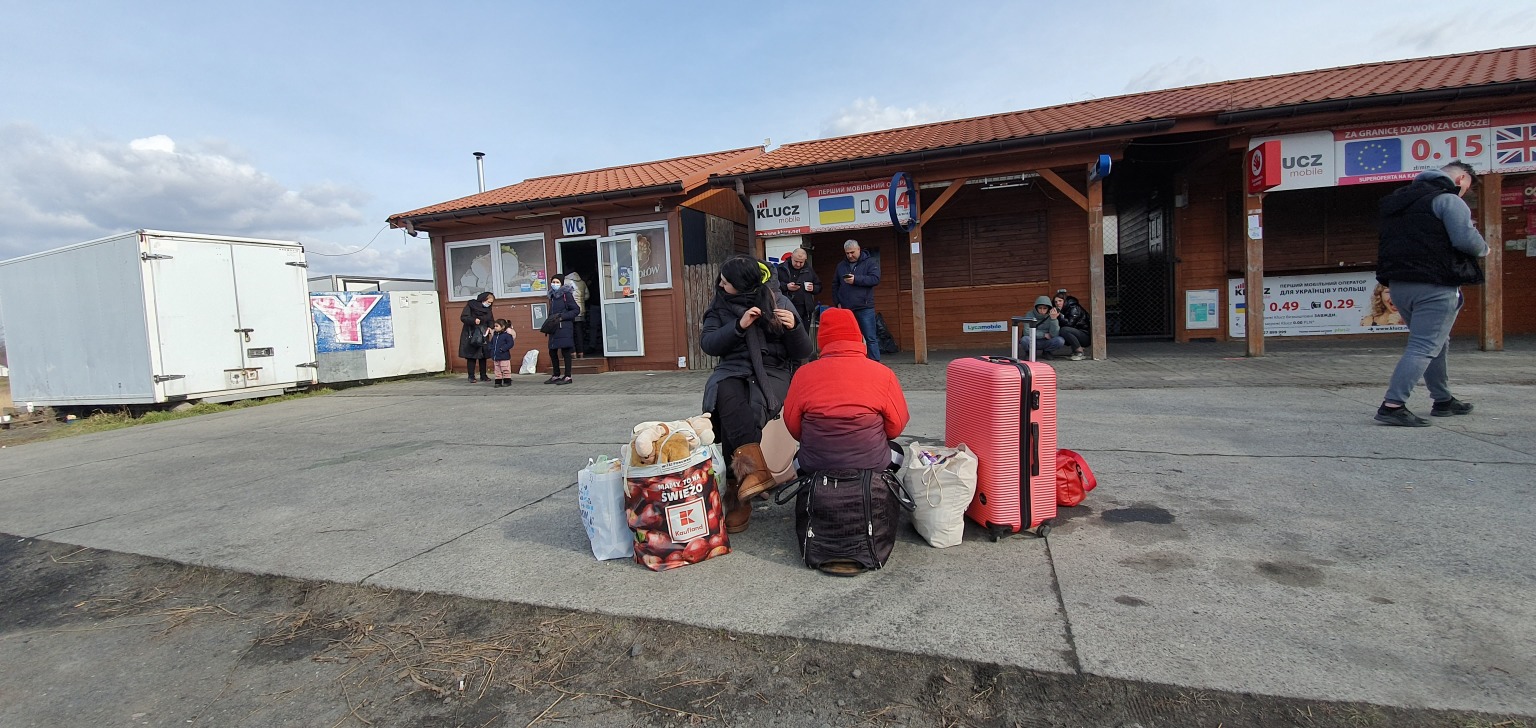
Ukraine's president, Volodymyr Zelensky, is Jewish. His family was partially wiped out in the Holocaust. While Ukraine has, like most of Europe, far-right elements, and grapples with corruption and governance, it is a democratic country. A comedian-turned-politician, Zelensky was elected, in a free and fair election, with more than 70% of the vote. Putin, by contrast, has been in power for 22 years, imprisoning democratic opposition leaders, poisoning critics and opponents, and accumulating vast personal sums of wealth.
Zelenkyy (44) has been, so far, the stand-out leader in a conflict he tried to avoid. His reported response to Washington's evacuation request — “I need ammunition, not a ride” — could be out of a Ronald Reagan political script. It is certainly one that President “Going Going” Ghani did not employ in Kabul.
Putin's calculus appears, by contrast, nostalgia-infused, looking to return to the era of the Soviet empire to be able to go forward.
His neo-Nazi line is bizarre. While it was always going to be difficult to justify an invasion of a weaker, sovereign, democratic country next door, his narrative has seemingly been designed for domestic Russian and Ukrainian consumption, less a sophisticated overarching explanation, and more out of the introduction to the despot's guide to explaining why you've done something mad and bad.
This is not entirely unexpected. The last remaining of a pantheon of global leaders — Mandela and Václav Havel among them — that oversaw democratic transitions at the end of the Cold War, Lech Walesa went from electrician to trade union leader to president of Poland in 1990.
Now 78, the Nobel Peace laureate told me: “Russia is still living in a world where the ambition is to conquer and attack in using tanks and violence against other people.”
Putin, he adds, would like to “enlarge Russia's territory and increase his influence in this old style, by force”. He admits his frustration with the path of domestic and international politics. “How many bruises,” he asks, “do we have to endure and how much blood do we have to lose to take up the wisest path of development? The best path is where power is written into a constitution, where there is a separation of powers and judicial independence, and a free press.”
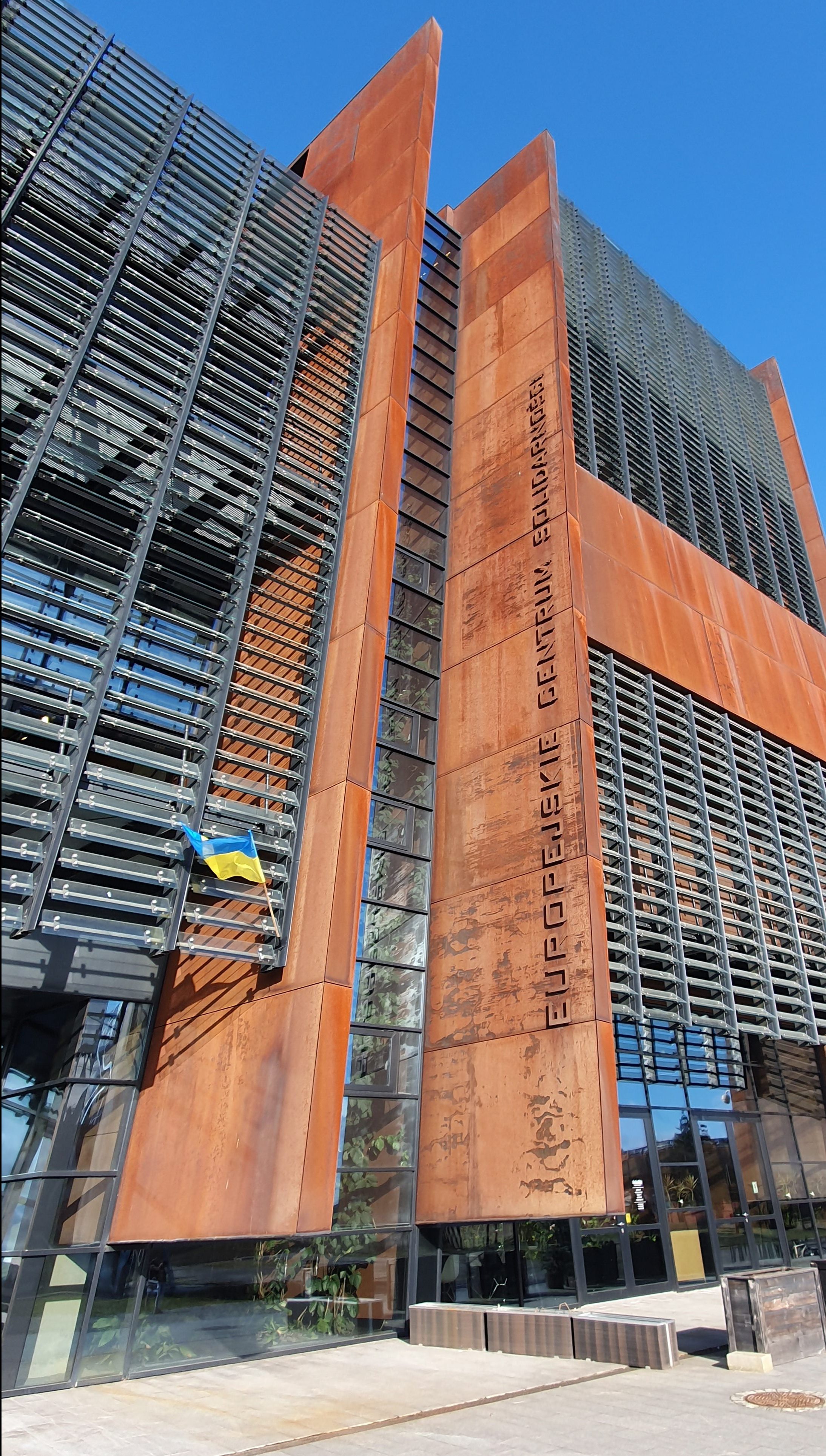
The former president, who stepped down in 1995, was speaking from Gdansk's European Solidarity Centre, situated at the dockyard gate which had become the scene of many of the protests in the 1980s, the tip of a groundswell against the pro-Soviet rule of General Wojciech Jaruzelski. In an eerie ethnic echo with Russian claims on Ukraine, eight decades earlier the Nazis demanded that Poland hand over the port of Danzig (Gdansk) to ensure peace, after which there was to be a referendum in the corridor to the port based on residency and demography of the year 1919.
A quote from Havel at the Solidarity Centre reminds of the struggles and hopes of the time. In identifying what changed, the Czech hero wrote of “a lot of high walls, which divided people, nations and all continents in defiance of common sense. The Iron Curtain which separated European nations… collapsed. Walls built among citizens by omnipresent fear tumbled down.”
Fast-forward 33 years. Whatever the memories and resonance, the Russian invasion of Ukraine is the gravest security crisis Europe has faced at least since the end of the Cold War. It will have consequences, for the global economy and politics, and for Africa (the subject of tomorrow's article), no matter its desire to stay out.
Several of these impacts are already in play, the outcome of which will depend on responses made in the next days and, possibly, weeks.
The invasion of Ukraine — in 2014 as now — has been justified by Moscow in terms of the protection of the Russian nation and its interests, as an assertion of Russia's historical role and the deep, cultural ties between the two countries. “I said that Russians and Ukrainians were one people, a single whole,” described Putin in 2020, intent apparently on bringing Ukraine, increasingly looking westwards for its economic and security future, back into Russia's sphere of influence.
While this should not excuse Putin's policy, it helps to explain it.
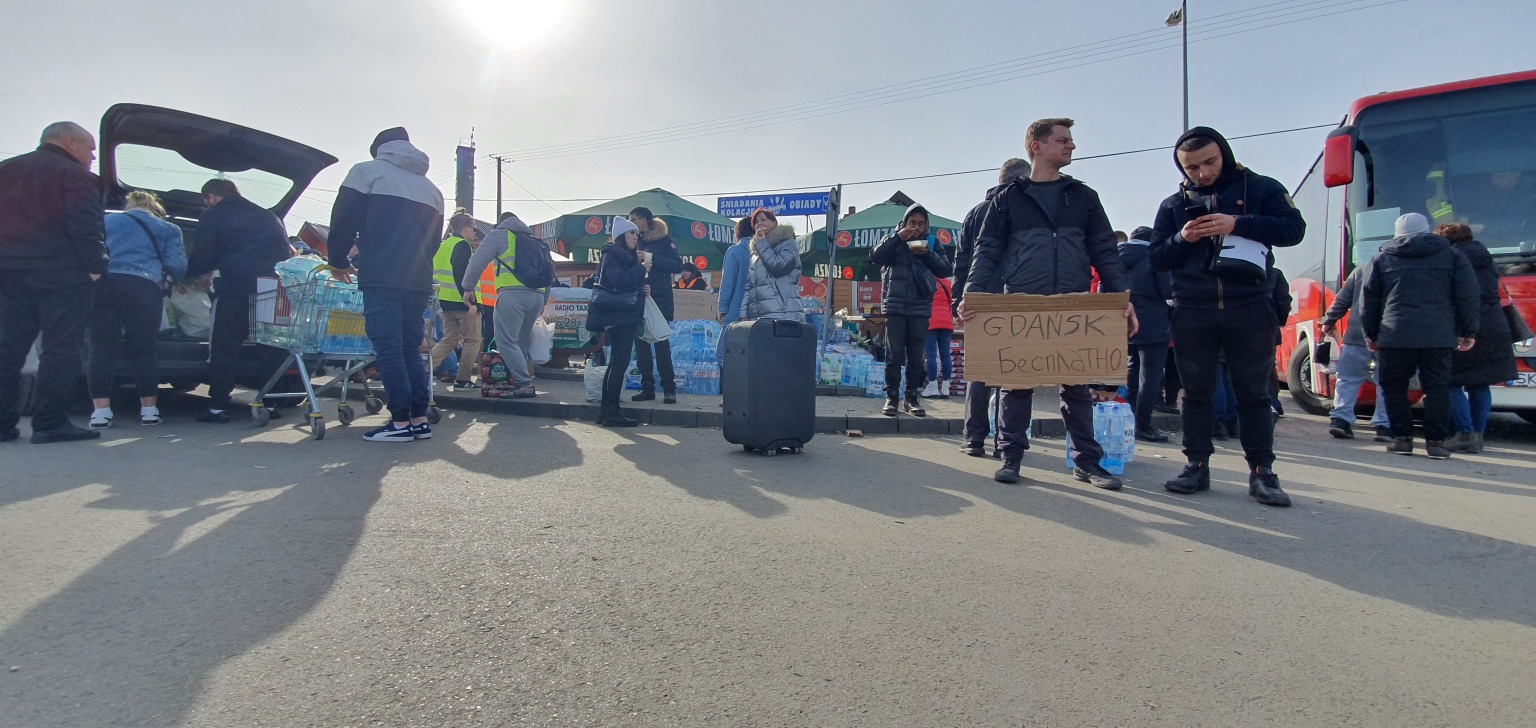
Putin is obsessed with putting right the collapse of the Soviet Union, an event he described as one of the greatest disasters of modern history, thereby disregarding Ukraine as an independent country and Ukrainians as separate people. “Modern Ukraine was entirely and fully created by Russia,” he said on the Monday before the invasion.
When the Russian leader declared war last week, it was the West, he said, that created the “fundamental threats” to Russia that prompted him to attack Ukraine, and it is the West, which he caricatured as an “empire of lies”, that Russia would seek to humble in the ensuing war. The West, he added, “tried to crush us, beat us down and finish us off” after the end of the Cold War. “We remember that and will never forget it.” Russia maintains that it was promised no Nato enlargement to the east after the fall of the Berlin Wall, a pledge that has become Putin's casus belli, whether fact or fiction.
Nostalgia rules regardless. Not for nothing was the invasion launched the day after Fatherland Day in Russia and in the centenary of the founding of the Soviet Union.
It is sometimes forgotten, however, that history cuts both ways. There is a Ukrainian view, after all, about the Soviet Union, and it's far from fuzzy nostalgia.
Within the same imperial timeframe, for instance, a peasant revolt across Ukraine against the Bolsheviks was put down in 1921, causing the Soviets to fear the power of the combination of Ukrainian nationalism and its peasantry. In two engineered famines, perhaps as many as ten million Ukrainians died. The first, in 1921-2, cost half a million lives after the confiscation of food; in the second, the great Holodomor (meaning death by hunger) 10 years later, between four and 10 million Ukrainians died, at the low estimate more than 10% of its population.
Putin's Ukraine gamble, if it pays off, seems to aim at quickly establishing Russia's sphere of influence and the West's limits, perhaps even sparking a bold Chinese move on Taiwan. If the latter were successful, it would signal the end of US dominance in the Asia Pacific, with countries that were once US allies, including South Korea and Japan, having to kowtow to a Chinese-led order.
More than territory, this encompasses a battle of ideas, between Western liberalism promoting individual human rights and a more “hybrid” model stressing collective over individual rights. “Both Putin and [Chinese President] Xi [Jinping] have also made it clear they believe that America's ultimate goal is to overthrow the Russian and Chinese governments,” writes Gideon Rachman, “and that local pro-democracy forces are America's Trojan horse.”
If there is a strategic goal to this beyond revanchism, it is to undo democracy.
As Anne Applebaum has argued, Putin's actions against Ukraine are driven by his aim of making democracy fail, and not just in Ukraine. While she says that the Russian leader is less nationalistic than an “imperial nostalgist”, she believes his motives behind crushing Ukraine stem from his experience in Dresden in East Germany, from where he endured the fall of the Berlin Wall in November 1989. “For KGB operatives,” she writes, “this was not a time of rejoicing, but rather a lesson about the nature of street movements and the power of rhetoric: democratic rhetoric, antiauthoritarian rhetoric, anti-totalitarian rhetoric.”
To keep such dangerous ideas from spreading, Russia had to “maintain careful control over the life of the nation,” writes Applebaum. “Markets cannot be genuinely open; elections cannot be unpredictable; dissent must be carefully 'managed' through legal pressure, public propaganda, and, if necessary, targeted violence.”
In this way, this is not Russia's war, but Putin's.

Whereas US President Woodrow Wilson spoke of “making the world safe for democracy” in 1917, the year of the Bolshevik Revolution, now Putin (and Xi) seem determined to make the world safe for autocracy.
Such a Weltanschauung may well encourage and accelerate democratic regression and feed authoritarianism elsewhere, including in Africa, with long-term negative consequences for human rights and human development.
In response to their own insecurity, “instead of democracy,” writes Applebaum, Putin and his ilk “promote autocracy; instead of unity, they try constantly to create division; instead of open societies, they promote xenophobia. Instead of letting people hope for something better, they promote nihilism and cynicism.”
Hence the decision to invade, again, Ukraine, to collapse its democracy and its economy, straining Western institutions to breaking point, supporting authoritarians elsewhere from Syria to Sudan, shrinking US influence all the while.
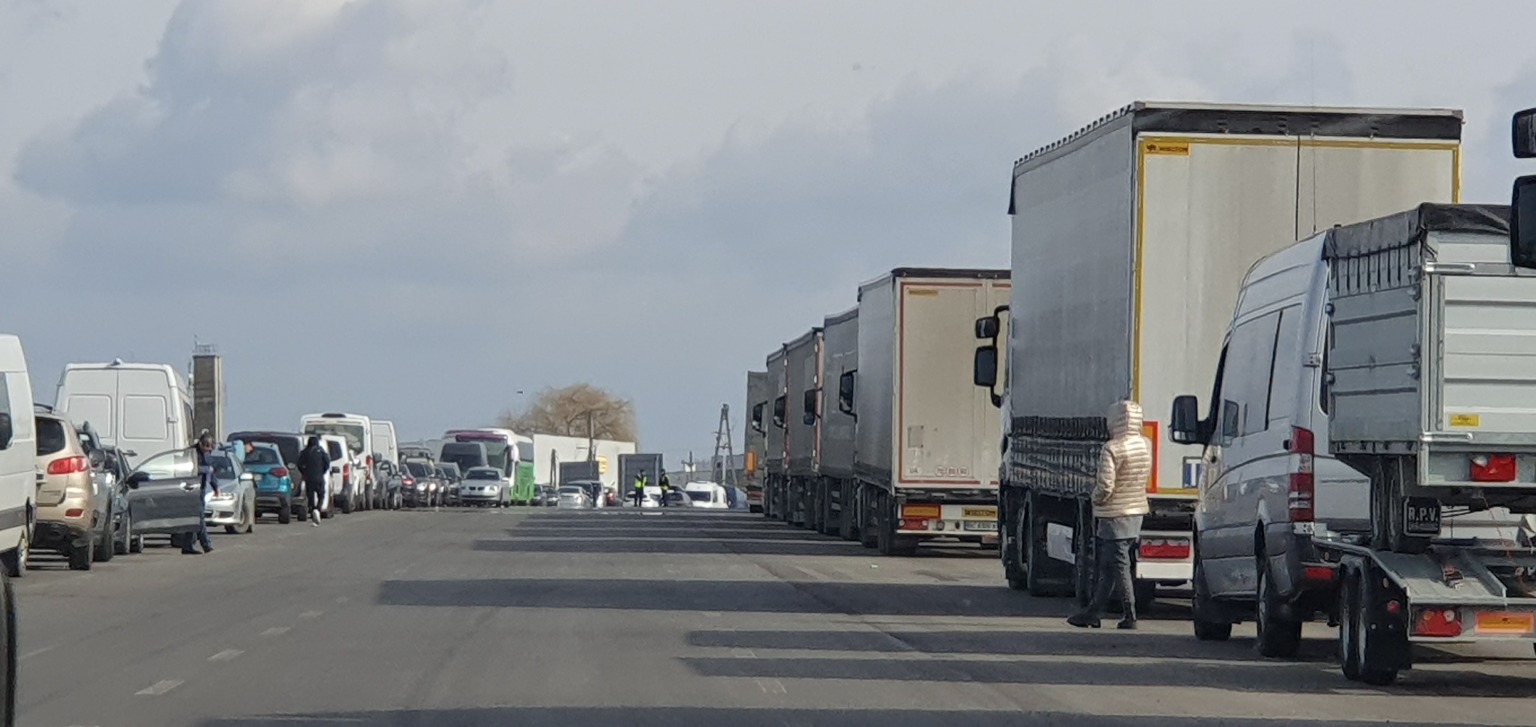
To parody Francis Fukuyama's line on the end of the Cold War, it's the return of history. But it's a history that contains great risk and potentially huge costs. It presumes for instance that Putin's concern about Ukraine's mooted membership of Nato would, once dealt with to Russia's satisfaction, slake his imperial nostalgia.
In getting to this point, the West could be criticised for not taking Putin's security concerns seriously, and for not learning the lessons of 2014. Whatever the long gestation of his Ukraine policy, the timing of Putin's decision to militarise his foreign policy appears to be linked to world events, not least the Afghanistan debacle and Chancellor Angela Merkel's retirement.
One aspect of the Russian version of contemporary “non-linear” or hybrid war is to divide, demoralise and distract your opponents. Threatening rapid escalation to somewhere no one wants to go, was part of this ploy. In his global address declaring war, Putin said that the “consequences” against those who attempt to retaliate would provoke a response “never seen in history”. This sabre-rattling continues, now overtly nuclear-tipped with the placing on alert of Russia's deterrence capacity.
All this has, so far, had the impact of strengthening Ukrainian and the democratic world's resolve. The West's decision to make public intelligence on Russia's military build-up and calling its timing and intentions for war accurately has also boosted its credibility.
And since the invasion, this determination has resulted in much tighter sanctions, less inhibited arms flows to the Ukrainians, a more coherent Nato and larger deployments to its member-states, and the suspension of the Nord Stream 2 gas pipeline project. While some may have empathised with Putin's concerns about Nato expansion, by invading a sovereign (and democratic) nation, he has changed the rules.
While sanctions may wane over time under pressure from cold consumers, unprincipled politicians and heartless profiteers, there will be considerable short-term pressure to keep them on. And they will especially hurt the pockets of Russia's elite.
Putin may also have unwittingly put the brake on rising European authoritarianism, not least in neighbouring Poland and Hungary. In both cases, populist politicians have benefited from growing public unease with democracy and a perceived inequality of benefits, especially to the rural populations.
This week is a big one for Putin. If the Ukrainians continue to withstand Russian military pressure, and if negotiations do not succeed, Putin has a problem on his hands. To get out of this potentially very big hole, he will need to reboot his attack. This could involve the commitment of his heavy forces, including the use of thermobaric artillery.
If he is successful, and Ukraine capitulates, China and Iran would be watching closely.
But even if Russia wins militarily, it is uncertain how Moscow will maintain its authority in Ukraine. More than 80% of Ukrainians polled at the end of 2020 had a negative view of Putin, explaining both the worsening of the relationship and the narrow margin for manoeuvre enjoyed by the government in Kyiv. The most likely outcome in this scenario is a dysfunctional (perhaps dismembered) state in a frozen, perpetual conflict, costly to Russia, its image, and to Putin.
The war could, in the opinion of military experts, settle into a form of insurgency-cum-siege warfare, à la Chechnya. Mounting civilian casualties in such a scenario would harm and isolate Russia. There is an important difference with Chechnya in that many countries can and will assist the Ukrainians from sympathetic neighbourhood sanctuaries.
If the outcome is lots of Russians in body bags, Putin's hubris might suffer the same fate that the West's did in Iraq, when it chose a similar path with hard power in hand.
As we drove out towards Krakow on Poland's magnificent highways, convoys of military trucks moved endlessly in the opposite direction. It was impossible to not but think of scenes 80-something years ago. Putin has started a war he cannot afford to lose. As one senior British security source put it, “He can't afford a long, bloody insurgency. So, he has now to find a face-saving way to sue for peace — or escalate.”
If peace talks fail, things could get horrible in the next few days, and really dangerous.


